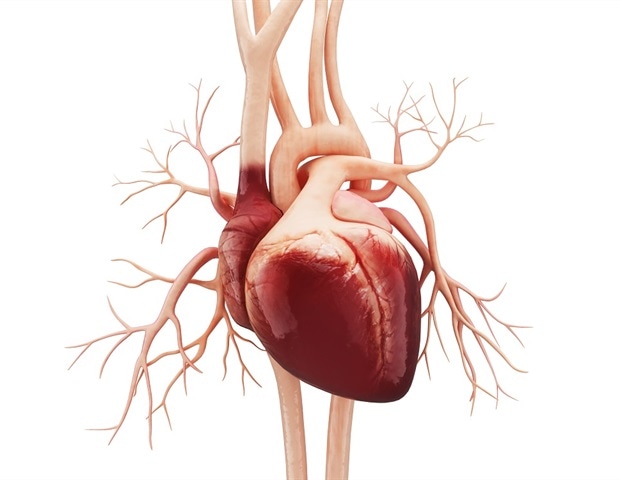Health
New Study Reveals Surprising Causes of Heart Attacks in Younger Women

A recent study from the Mayo Clinic has uncovered that many heart attacks in individuals under the age of 65, particularly in women, are attributed to causes beyond the commonly assumed clogged arteries. This research, published in the Journal of the American College of Cardiology, analyses over 15 years of data from the Rochester Epidemiology Project, marking a significant advancement in understanding heart attack triggers in younger populations.
The findings indicate that more than half of heart attacks in women under 65 are linked to nontraditional factors, including spontaneous coronary artery dissection (SCAD) and embolism. These conditions differ from the typical heart attack caused by plaque buildup in arteries. Although the overall incidence of heart attacks is lower in women compared to men, when they do occur, the underlying causes are frequently misdiagnosed.
SCAD, which predominantly affects younger women who are otherwise healthy, is often wrongly classified as a typical heart attack. The study revealed that while atherosclerosis accounts for 47% of heart attacks in women, it is responsible for 75% of cases in men. This misdiagnosis can lead to inappropriate treatments, such as unnecessary stenting, which may increase the risk of complications.
Understanding Nontraditional Heart Attack Causes
The research highlights that the five-year mortality rate for heart attacks triggered by stressors, such as anemia or infection, is alarmingly high at 33%. These cases, despite showing lower levels of heart injury, indicate that stress-related factors can have a severe impact on outcomes. The study also noted that unexplained heart attacks comprise less than 3% of cases after thorough examination.
Dr. Claire Raphael, interventional cardiologist and lead author of the study, emphasized the importance of recognizing these nontraditional causes. “When the root cause of a heart attack is misunderstood, it can lead to treatments that are less effective or even harmful,” she stated. This new perspective on heart attacks could significantly improve patient care and outcomes.
Dr. Rajiv Gulati, chair of the Division of Interventional Cardiology and Ischemic Heart Disease at Mayo Clinic, noted that the findings create an urgent need for clinicians to be vigilant about conditions like SCAD and other stress-related triggers. He urged patients to advocate for their health when something feels off, reinforcing that understanding the cause of a heart attack is as vital as treating it.
Implications for Future Care
The research serves as a wake-up call for how heart attacks are diagnosed and managed in younger adults, particularly women. As the study suggests, clinicians must enhance their awareness of these conditions to provide appropriate care. This understanding could potentially reshape treatment protocols and lead to better long-term health outcomes for young women experiencing heart attacks.
In conclusion, this comprehensive study sheds light on the overlooked causes of heart attacks in younger populations, advocating for a shift in medical practices that could save lives. The implications of these findings are profound, encouraging healthcare professionals to adopt a more nuanced understanding of heart health in women and younger individuals alike.
-

 Health3 months ago
Health3 months agoNeurologist Warns Excessive Use of Supplements Can Harm Brain
-

 Health3 months ago
Health3 months agoFiona Phillips’ Husband Shares Heartfelt Update on Her Alzheimer’s Journey
-

 Science1 month ago
Science1 month agoBrian Cox Addresses Claims of Alien Probe in 3I/ATLAS Discovery
-

 Science1 month ago
Science1 month agoNASA Investigates Unusual Comet 3I/ATLAS; New Findings Emerge
-

 Science1 month ago
Science1 month agoScientists Examine 3I/ATLAS: Alien Artifact or Cosmic Oddity?
-

 Science1 month ago
Science1 month agoNASA Investigates Speedy Object 3I/ATLAS, Sparking Speculation
-

 Entertainment5 months ago
Entertainment5 months agoKerry Katona Discusses Future Baby Plans and Brian McFadden’s Wedding
-

 Entertainment4 months ago
Entertainment4 months agoEmmerdale Faces Tension as Dylan and April’s Lives Hang in the Balance
-

 World3 months ago
World3 months agoCole Palmer’s Cryptic Message to Kobbie Mainoo Following Loan Talks
-

 Science1 month ago
Science1 month agoNASA Scientists Explore Origins of 3I/ATLAS, a Fast-Moving Visitor
-

 Entertainment2 months ago
Entertainment2 months agoLewis Cope Addresses Accusations of Dance Training Advantage
-

 Entertainment3 months ago
Entertainment3 months agoMajor Cast Changes at Coronation Street: Exits and Returns in 2025









